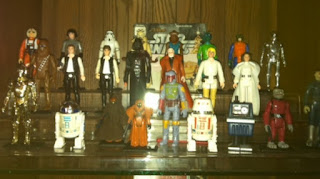You Like Me, You Really Like Me
Nick Mamatas drops the bomb on yesterday's NY Times article by Dave Itzkoff:
'The often comfortable, sometimes fascist, middle has just enough leverage and dough to insulate themselves from much social change, and when the dough runs out they're the ones who slap on the Hugo Boss suits and the armbands and try to drag the world back into some Golden Age bereft of labor unions, international capital, and Jews. Not people you want to agitate too much, at least not on your first time out as an SF critic.'
So does Matt Cheney. On second read (which is where this seems to really reveal itself to everyone) the review/manifesto seems to relay more of Itzkoff's concerns with the social status of the sci-fi reader than it does the problems of the genre. I think Ben Marcus had this out with Jon Franzien back in Harper's, where Marcus took Franzien to task for putting the Reader before the innovation and challenge of fiction. Itzkoff seems to want some elements of sci-fi to do away with -- well, some sci-fi elements -- so that mainstream readers of books Oprah might suggest (like The Corrections?) will not ridicule or shun him on the subway. Like I said yesterday, boilerplate sci-fi doesn't always interest me, but I wouldn't ever concern myself with who noticed me reading it. Part of science fiction's appeal has always been, for me, its outsider quality. Should it be accepted as a geniune literary form? Absolutely. Is it? Absolutely. Does everyone need to read it to validate my existence? No.
Read Kelly Link's Magic For Beginners for free.
I have a novel I'm supposed to be writing. Except I'm thinking of another all the time. Thinking isn't cheating, is it? Maybe Itzkoff should ask his subway peers what books they're really thinking about when they're reading The Kite Runner. I have an idea for a story, I think; I have a beginning, and I don't know if it's to a story, or a poem, or something else entirely.
'The often comfortable, sometimes fascist, middle has just enough leverage and dough to insulate themselves from much social change, and when the dough runs out they're the ones who slap on the Hugo Boss suits and the armbands and try to drag the world back into some Golden Age bereft of labor unions, international capital, and Jews. Not people you want to agitate too much, at least not on your first time out as an SF critic.'
So does Matt Cheney. On second read (which is where this seems to really reveal itself to everyone) the review/manifesto seems to relay more of Itzkoff's concerns with the social status of the sci-fi reader than it does the problems of the genre. I think Ben Marcus had this out with Jon Franzien back in Harper's, where Marcus took Franzien to task for putting the Reader before the innovation and challenge of fiction. Itzkoff seems to want some elements of sci-fi to do away with -- well, some sci-fi elements -- so that mainstream readers of books Oprah might suggest (like The Corrections?) will not ridicule or shun him on the subway. Like I said yesterday, boilerplate sci-fi doesn't always interest me, but I wouldn't ever concern myself with who noticed me reading it. Part of science fiction's appeal has always been, for me, its outsider quality. Should it be accepted as a geniune literary form? Absolutely. Is it? Absolutely. Does everyone need to read it to validate my existence? No.
Read Kelly Link's Magic For Beginners for free.
I have a novel I'm supposed to be writing. Except I'm thinking of another all the time. Thinking isn't cheating, is it? Maybe Itzkoff should ask his subway peers what books they're really thinking about when they're reading The Kite Runner. I have an idea for a story, I think; I have a beginning, and I don't know if it's to a story, or a poem, or something else entirely.


Comments